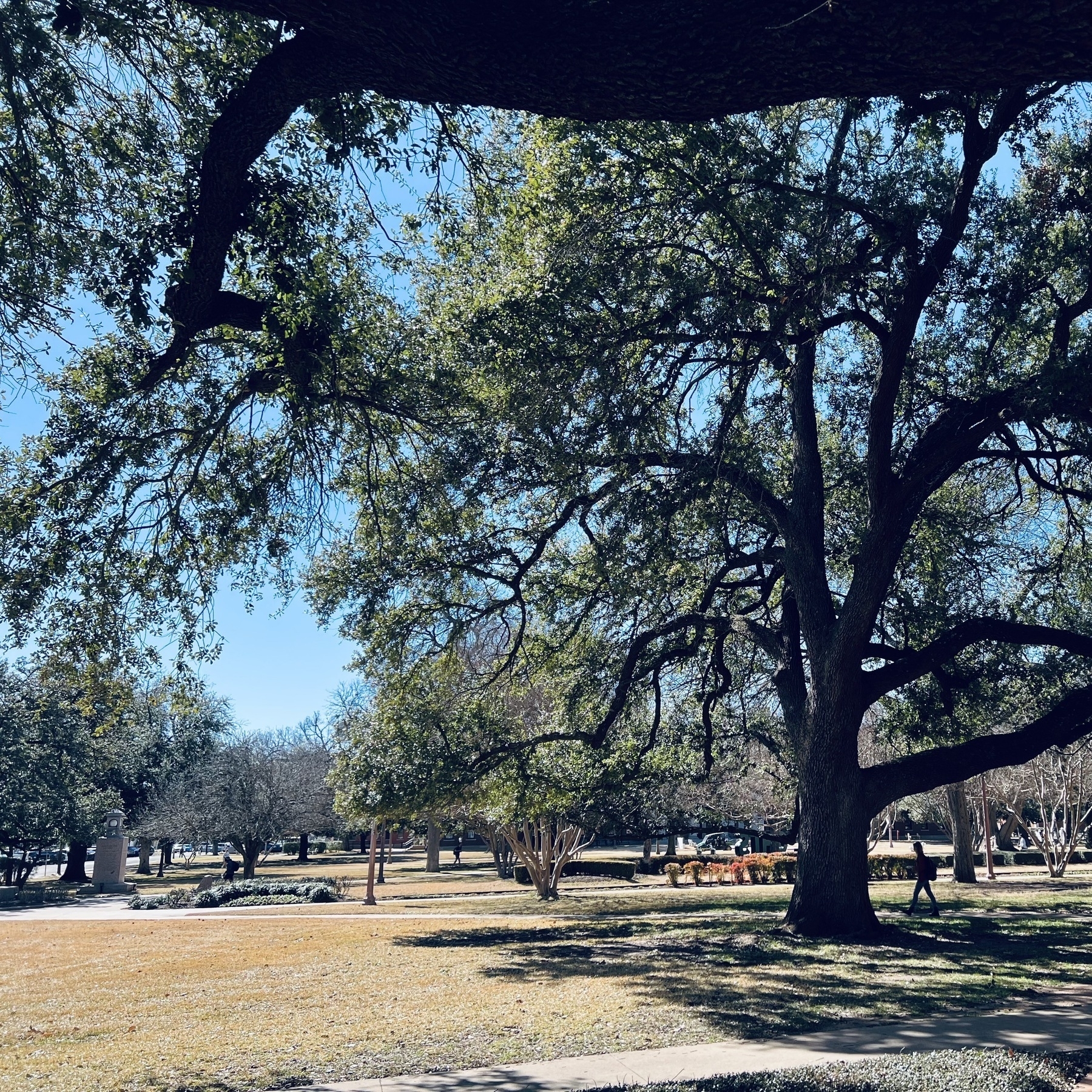useful thinkers in three kinds
Useful thinkers come in three varieties. The Explainer knows stuff I don’t know and can present it clearly and vividly. This does not require great creativity or originality, though Explainers of the highest order will possess those traits too. The Illuminator is definitionally original: someone who shines a clear strong light on some element of history or human experience that I never knew existed. (Though sometimes after reading something by an Illuminator I will think, Why didn’t I realize that before?) The Provoker is original perhaps to a fault: Ambitious, wide-ranging, risk-taking, Provokers claim to know a lot more than they actually do but can be exceptionally useful in forcing readers to think about new things or think in new ways.
Some 20th-century thinkers who have been vital for me over the years:
- Explainers: Charles Taylor, Mary Midgely, Freeman Dyson
- Illuminators: Mikhail Bakhtin, Iris Murdoch, Michael Oakeshott
- Provokers: Gregory Bateson, Kenneth Burke, Simone Weil
It’s especially important not to allow the Provokers to convince you that they’re Explainers or Illuminators. This is I think the great error of Girardians: If you take Girard as an Explainer, as they do, then his influence is likely to be disastrous; but if you were to see him as a Provoker, then he could be quite helpful to you.
Kierkegaard once wrote in his journal, “If Hegel had written the whole of his logic and then said, in the preface or some other place, that it was merely an experiment in thought in which he had even begged the question in many places, then he would certainly have been the greatest thinker who had ever lived. As it is, he is merely comic.” That is, Hegel could have been the greatest of the Provokers, but, alas, he thought he was an Illuminator. (One of the ironies here is that Kierkegaard himself sought largely to be a Provoker in his pseudonymous writings, but that work has consistently been taken as illumination. The works Kierkegaard signed with his own name, the ones in which he genuinely tried to illuminate, have been largely ignored.) Much the same could be said of Rousseau: marvelous and wonderful as a Provoker, but God help the reader who takes his purported illuminations seriously.
Obviously one shouldn’t be too legalistic here: Some great thinkers might fulfill one role in one book, a different role in another book (Francis Bacon is the first example that comes to mind). And some of the greatest books serve to explain, illuminate, and provoke all at once — though this is quite rare, and probably no book has an equal distribution of the three virtues. (I may say more about this later, in a post on humanistic scholarship.) But I find these categories useful in helping me to know what I can reasonably expect to get out of the books I read.
Possible topic for another post: Whether novelists and poets can be fit into these categories as well.
Old loyalties.

soma
Adam Roberts, back in 2014:
There is, I think, a genuine human fascination with outer space. Apollo could have capitalised upon that fascination and expanded into broader and better conceived programmes. But it didn’t, and the real reason it didn’t is that people found a more satisfying way scratch their metaphorical itch. Like a diet of sweets and pastries instead of spinach and brown rice, big screen sci-fi quelled our appetite for space travel in a way both delicious and fundamentally unhealthy. Why should people around the globe give up a significant fraction of their respective gross national products to pay for actual space travel when Hollywood could give them all the thrills of outer space in virtual form?
I think this point — which I missed back when it was published — harmonizes nicely with the argument I made in my essay from the same year, “Fantasy and the Buffered Self”:
Fantasy — in books, films, television shows, and indeed in all imaginable media — is an instrument by which the late modern self strives to avail itself of the unpredictable excitements of the porous self while retaining its protective buffers. Fantasy, in most of its recent forms, may best be understood as a technologically enabled, and therefore safe, simulacrum of the pre-modern porous self.
Stories as distractions, as substitute satisfactions, as soma.

Currently reading: The Gnostic Religion by Hans Jonas 📚
To start, large social media companies should be required to become interoperable with one another: Just as you can email someone who uses a different email provider than your own, you should be able to contact and engage with individuals across different social media platforms. In the same vein, large social media companies should be required to permit the use of alternate filtering and sorting algorithms — democratizing content moderation by allowing users to choose which content they wish to view or block, rather than relying on the black-box internal processes of an individual, hyper-concentrated company.
Agreed, except that the first point is potentially in tension with the second. Perhaps micro.blog should be forced to become interoperable with Twitter, but I should also be able to set my micro.blog account so that I will never see anything that anyone on Twitter says to me — which is precisely the setting I would choose.
seeds and means of renewal

In a recent column, David Brooks writes extensively and thoughtfully about the prospects for the renewal of the moribund evangelical movement. He cites some reasons for hope — though the signals are weak at the moment — but also points to some concerns:
Over the past few years, I’ve joined and observed a few of the conferences and gatherings organized by Christians who are trying to figure out how to start this renewal. Inevitably there were a few sessions diagnosing the problems, then a final one in which people were supposed to suggest solutions. I would summarize the final sessions this way: “Mumble, mumble, mumble. Well, it was nice to see y’all!”Yeah. I think the primary reason for this confusion is that evangelical leaders are the products of the institutions of that movement — colleges, seminaries, various parachurch organizations — and those institutions either have failed to provide serious intellectual equipment or, when they done their jobs well, their voices have been drowned out by the entrepreneurial/marketing noisemakers who insist that the building of churches is exactly like the building of businesses.
If the evangelical church, or the church more generally, is going to be renewed, it will need to find leaders who are (a) deeply grounded in Christian theology and practice, (b) attentive to the contours and demands of our ambient culture, and (c) able to think imaginatively about the complex ways that (a) and (b) interact.
For the last several years, I have, on this blog and elsewhere, tried to create a framework for how to do just this kind of work and in the process begin to renew Christ’s church. As far as I can tell, this project has had absolutely no impact on anyone. I am not sure why. I just know that my writing has always been much better received by non-Christians than by my fellow believers; the latter seem not to know what to make of my ideas — perhaps because they don’t obviously belong to any particular school or tradition? I dunno. Maybe I just don’t have anything useful to say. But I keep trying anyway.
Let me gather together links to some of my thinking on these topics, in what I think is a useful order:
- First, the Gospel of Life;
- Then, some thoughts on the imperative of church repair;
- Followed by a vital clarification by Ellen Charry on what theology is for;
- Then, an outline of the difficulties of making real disciples in a culture that catechizes, especially through ambient propaganda;
- Which yields a situation to which we can only respond properly if we understand and can reckon theologically with the inevitable plurality (not pluralism) of visions and emphases in the church today;
- And if we are able to reclaim the resources of thought and feeling and practice that our culture designates as filth.
His apocalypticism may be disturbing, or indeed mad, but it is not compatible with conservatism — or even with politics as such. Girard is not merely a source of stimulating or useful ideas for Silicon Valley. He is a messianic man of faith, for whom the decline of religion, and of the West, makes straight the way of the Lord.
Maybe; but Girard is also a great purveyor of nonsense. As Joshua Landy has shown in devastating detail, “Girardian doctrine is a theory of everything, on the cheap. It’s one of those systems that make you feel as though you know everything about everything while in fact requiring you to know almost nothing about anything.”
I stay away from almost all current kerfuffles, so maybe that’s what I was struck by a couple of things from this report by Kaitlyn Tiffany: (a) that to many Americans it now seems normal for people to devote hundreds of hours of their lives to listening to one podcast solely in order to find something, anything that can be used to shame the podcaster; and (b) that the people who behave in that way think their actions are politically meaningful.
A fantastic point by my friend Noah Millman in response to the question of whether Pulp Fiction could be made today:
The answer is of course not. You couldn’t make Pulp Fiction today. You also couldn’t make Dumbo, a film I adore far more. But you also couldn’t make Blazing Saddles. Indeed, you couldn’t make The Wizard of Oz or The Philadelphia Story or Ghostbusters or whatever other movies you love from the past, because they are rooted in the past. The reason not to bowdlerize these films is precisely that we can’t make them anymore. To “fix” them we’d have to be able to make them from scratch, as wonderfully as they did then, and we can’t. The best proof is that we do keep trying to remake them, and the results are usually terrible.
Read on for further wisdom from Noah.
A wise and useful reflection by Gabrielle Bauer on the "precautionary principle":
Two years into this pandemic, it is high time we learn from our mistakes. We must ask ourselves, at every step, whether our response matches or exceeds the threat. We must have full permission to discuss costs and benefits out loud, without fear of censure. When we invoke the precautionary principle, it must be with discretion and deliberation — with great caution, as it were.
An intractable problem whose intractability needs to be faced: the taking of extreme precautions in one sphere (e.g. infectious disease) will sometimes require a manifest failure of precaution in other spheres (e.g. mental health). The immediate prospect of physical danger generates intellectual myopia.
For good or ill, I have spent more time reading and writing poetry than doing anything else in my roughly three score and ten years of life. My poets, the poets I have grown to love, have become my second family, the family I chose; they constitute the better part of who I am. Diverse as this family is in language, gender, and race, it is still primarily (though not exclusively) a family of white Christian men and white pagan men. Some of them did terrible things off the page; some of them were fascists or fascist sympathizers. Some were spies. Some of them abused or neglected wives and children; some were mentally unstable. Many of them were drunks, perverts, drug addicts, sex addicts, sadists, brownnosers, backbiters. Some, furthermore, were colonialists, slave traders, slave owners. Some were themselves enslaved, or had once been slaves. Most were certainly anti-Semitic. Off the page, I probably would have detested them, and I have no doubt they would have detested me. But on the page they are guardian angels, beloved spirits, the most intimate and generous of guides. What they at their best have taught me is that the gold of the work is not reducible to the shit of the life. And that even the “wokest” of minds can never entirely escape the moral limits of their time and place. The miracle is what still manages to reach us, move us, expanding our understanding of what it means to be alive through someone else’s lived experience, not just despite our differences, but maybe, too, because of them.
Quite soon, I shall find myself before the final judge of my life. Even though, as I look back on my long life, I can have great reason for fear and trembling, I am nonetheless of good cheer, for I trust firmly that the Lord is not only the just judge, but also the friend and brother who himself has already suffered for my shortcomings, and is thus also my advocate, my ‘Paraclete.’ In light of the hour of judgment, the grace of being a Christian becomes all the more clear to me. It grants me knowledge, and indeed friendship, with the judge of my life, and thus allows me to pass confidently through the dark door of death. In this regard, I am constantly reminded of what John tells us at the beginning of the Apocalypse: he sees the Son of Man in all his grandeur and falls at his feet as though dead. Yet he, placing his right hand on him, says to him: “Do not be afraid! It is I …” (cf. Rev 1:12-17).
public and private
It is from community life that we draw the strength for discipleship and courage to face the inevitable opposition. In discipleship we find our brothers and sisters of the communal life. The Bruderhof community proves that. I ask myself what the state churches, still trying to lead a Christian life, can learn from such consistently Christian communities. First of all, we have to lay down our old prejudices and heretic-hunting. The closely related Mennonite and Hutterite groups have never – neither in the past nor today – been fanatic enthusiasts or narrow sectarians, but genuine Christian communities. True, their existence represents a criticism of the life of Christians in the established churches. The answer will be to begin learning from them. So I have been asking myself, how can the established institutional church become a living, communal church? How can our church parishes become communities of faith and of life? I believe that this is the way into the future, and I see more and more people going in that direction. We are not looking for the self-righteous Christian sect that despises the world, but for the open church of the coming kingdom of God. This church is open and welcomes everyone, like the Bruderhof does. It is open to the poor, the handicapped, and the rejected, who find a refuge and new hope there because they find Jesus.
I believe this with my whole heart, and I wish I were better at living up to, or living into, this vision. I don’t have social anxiety as such, but being in any group larger than four people is enormously stressful for me, and that stress has become more pronounced during covidtide, for reasons I can speculate about but do not fully understand. I have often thought that I would rejoice in the opportunity to go to church — if I could make myself invisible. Many wise people have said that there is no vision in the New Testament or the early church of a private Christian faith, but, since I cannot make myself invisible, oh how I wish there were.
In a reasonable world, most people would be able to distinguish
- misinformation
- minority opinions
- the views of my political enemies
attentional norms
Me at the Hog Blog on “attentional norms” and Zoom:
It has been interesting to watch over the last two pandemic years as the norms associated with videoconferencing have coalesced. My experience strongly suggests that the attention level expected on Zoom (and other videoconferencing platforms) is quite remarkably low — medieval-churchgoing low. Obviously, there will be exceptions to this norm — no one feels free to look away when the Boss is giving a speech — but I can’t remember the last time I was on a Zoom call in which participants were not regularly cutting their video and audio, or just their audio, to talk to people in the room with them. Or they just walk out of frame for a few minutes. Or they type away furiously on Slack or email or WhatsApp or iMessage. And no one who does this acts inappropriately, because such fidgeting and alternations of attention are permitted by the norms that have emerged.
It’s fascinating to me how these norms emerge. No one chooses them, they just happen; and when a lot of people are using one technology, they happen quickly. As I say in the essay, they also change, but they seem to change a lot more slowly than they emerge; and there’s nothing any one person can do to change them. When you’re a teacher, as I am, you have to be very observant about those attentional norms and choose the technologies that match your pedagogical purposes. Because you’re wasting your time if you try to enforce norms that are different than those people have absorbed from everyone else.
UPDATE: Everything I try to say here is said better by Rands: “Do you want to know why you’re fatigued at the end of a long day of video conferences? It’s because your brain has been straining to collect essential information that is no longer there.”
Gorgeous day on campus today.



